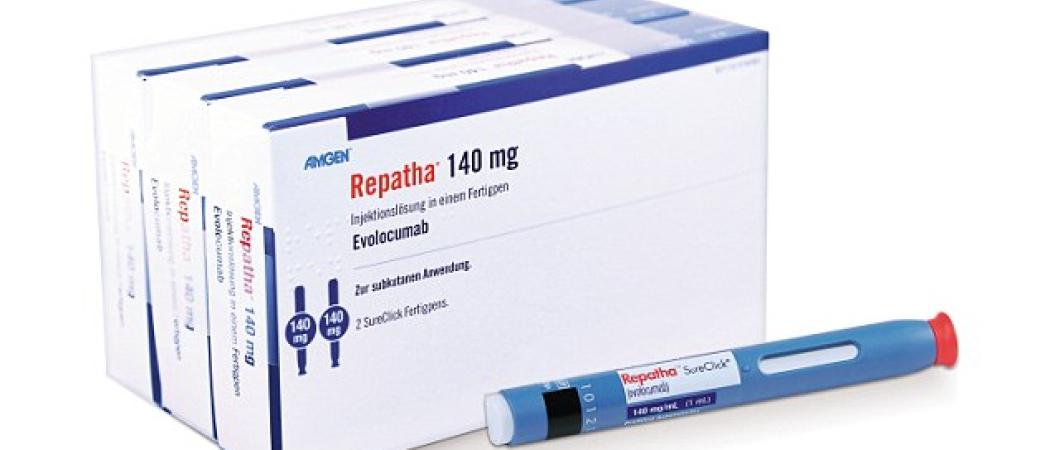
Amgen announced results from a new economic analysis of its cholesterol-lowering antibody Repatha (evolocumab), which identifies the clinical and economic consequences of treating a population of patients at high-risk of cardiovascular (CV) events and defines the cost-effectiveness of Repatha under various clinical scenarios.
The analysis is based on the clinical outcomes from the Repatha outcomes study (Fourier) in patients with established atherosclerotic cardiovascular disease (ASCVD), such as those who have already had a heart attack or stroke who require additional therapy.
Data from the Fourier trial are being presented at European Society of Cardiology Congress in Barcelona, today (August 29).
Repatha was found to be a cost-effective treatment for patients with established ASCVD in the US when the net price is at or below $9,669 per year. While there are no formally established cost-effectiveness thresholds in the US, this study used thresholds employed by the World Health Organization and the American College of Cardiology/American Heart Association.
This estimate of the value-based price range for Repatha is in line with the discount range typical for biologic medicines in the US market when applied to the US list price of Repatha.
Repatha delivers even greater value to patients at higher risk, as the cost-effectiveness is a function of disease severity and the risk of events.
“This is the first cost-effectiveness assessment of evolocumab using a model based on a high-quality outcomes trial, combined with US clinical practice data. The analysis identifies the types of high-risk patients for whom this therapy is both clinically beneficial and cost-effective,” said Gregg Fonarow, professor of medicine, UCLA David Geffen School of Medicine, who is lead author of the study, published in the Journal of the American Medical Association (JAMA) Cardiology.
The study provides a critical input to the overall cost-effectiveness debate that has surrounded Repatha and other cholesterol-lowering antibodies.
Several clinical scenarios were explored to determine whether Repatha is worth the investment, including event rates seen in real world clinical practice settings, event rates seen in the actual outcomes trial and in patients who have higher baseline levels of so called ‘bad’ LDL cholesterol.
The researchers determined that to remain below generally accepted cost-effectiveness thresholds in a typical US ASCVD population, the annual net price for Repatha would need to be at or below $9,669.
“This study affirms the clinical benefits and economic value of delivering Repatha to the right high-risk patients, specifically patients who have had a heart attack or stroke with high LDL levels despite maximally-tolerated statin therapy,” said Joshua Ofman, senior vice president, Global Value, Access and Policy at Amgen.
“The actual net prices for payers in the market today after discounts and rebates are quite close to the value-based price range identified in this study. While the list price is most often quoted in the media, it is the discounted net price that is actually paid by payers and that should be considered in value assessments,” Ofman said.
The Repatha outcomes study shows that patients with prior cardiovascular events remain at very high risk of additional heart attacks, strokes and the need for revascularisation despite statin therapy, so there is an urgency to identify and treat these patients.
“Unfortunately, despite value-based pricing in the market, many payers continue to erect access barriers for patients with no other therapeutic options,” said Ofman.
Amgen is working with US insurance companies and pharmacy benefit managers to evolve the clinical management of ASCVD and of patients with familial hypercholesterolemia, an inherited condition that leads to high levels of LDL cholesterol.
“Amgen has developed a suite of innovative contracting options, including refunding the cost of Repatha when patients have a heart attack or stroke while on therapy, and spending caps to address short-term budget impact concerns,” said Laura Hamill, senior vice president, US Business Operations at Amgen.





 A unique international forum for public research organisations and companies to connect their external engagement with strategic interests around their R&D system.
A unique international forum for public research organisations and companies to connect their external engagement with strategic interests around their R&D system.